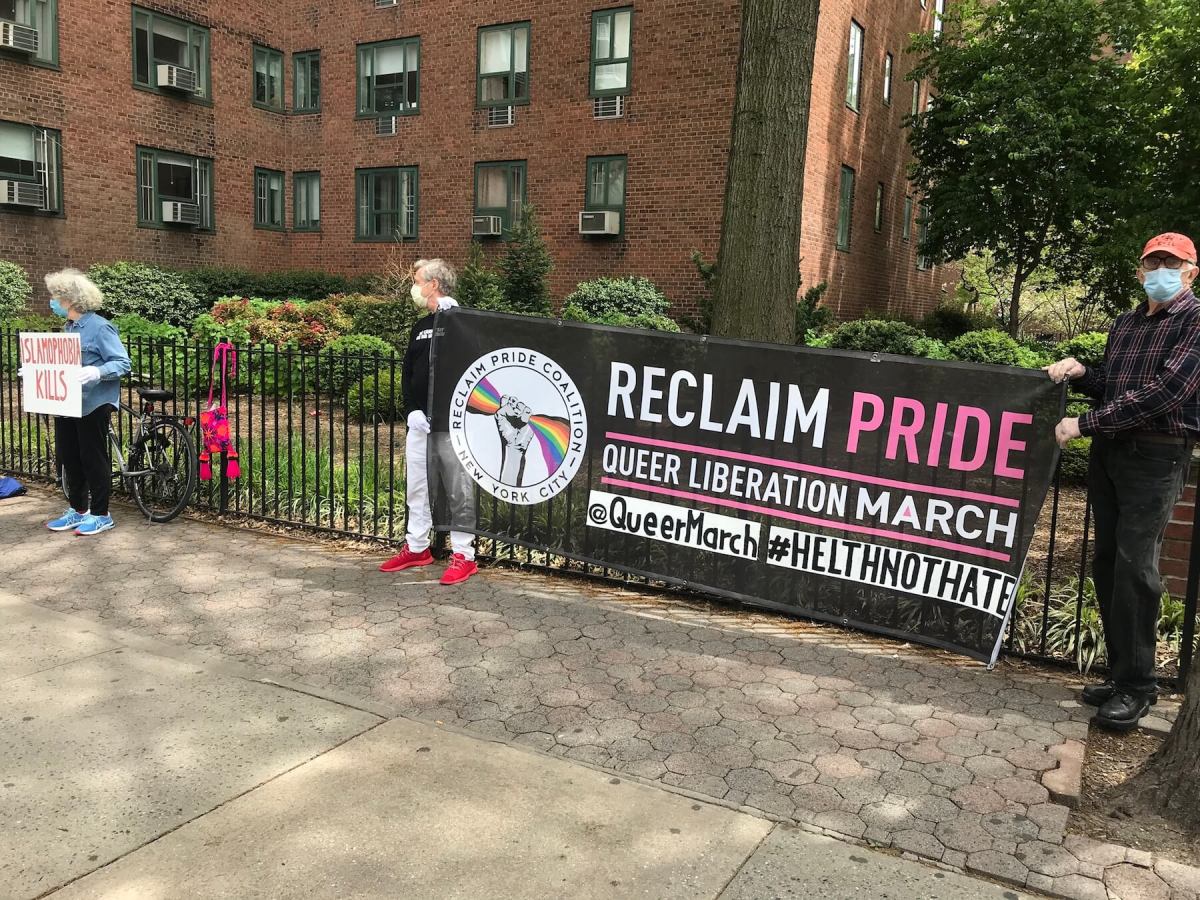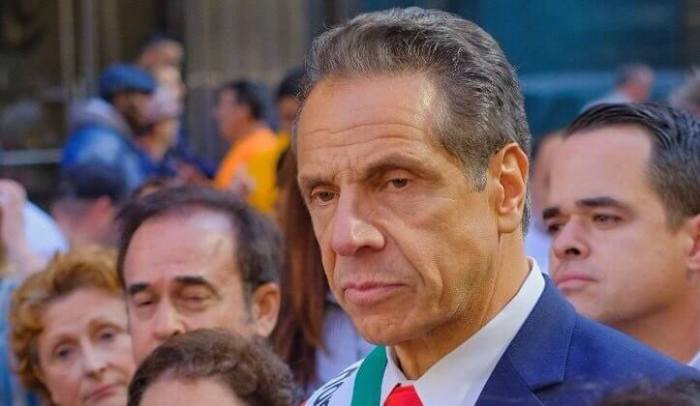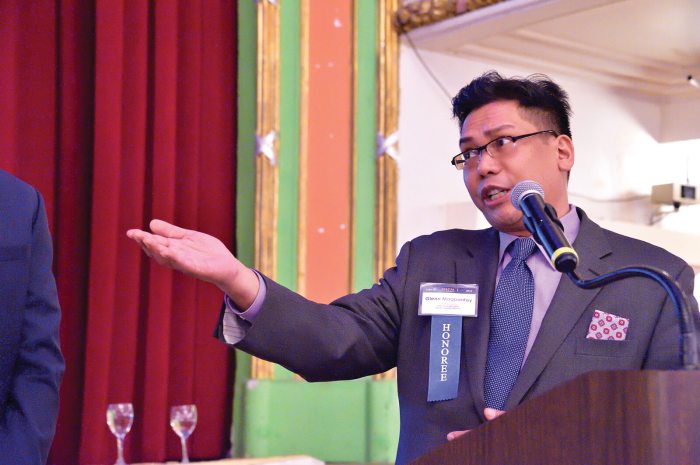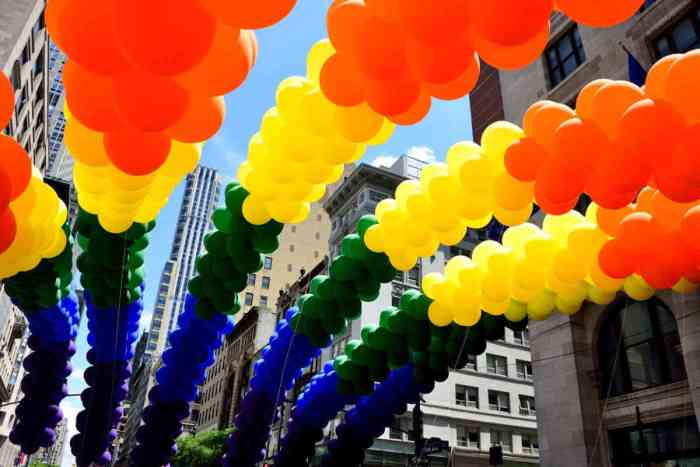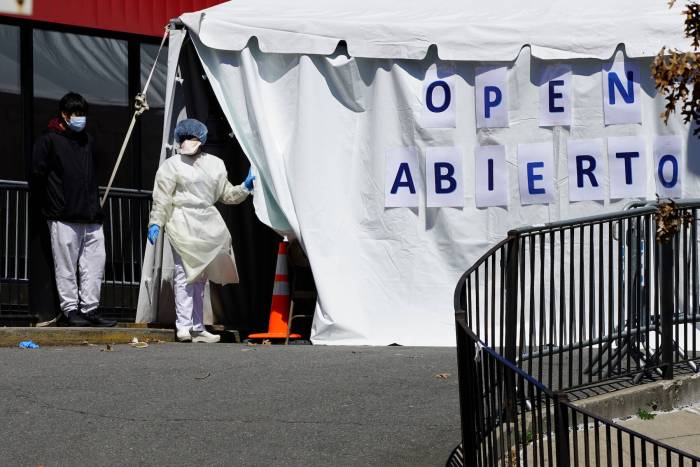On the same weekend when police attempted to shut down a press conference held by the Reclaim Pride Coalition in the East Village saying that public gatherings of any size are “unlawful” in New York City and threatening the participants with arrest, media were filled with stories showing large numbers of people gathering in city parks and police enabling if not encouraging that behavior by offering face masks to people in the parks and requiring people to be six feet apart.
“This is messy, the whole thing is messy,” said Eric Lane, a professor at Hofstra University’s law school who teaches public law and public service and has extensive experience in New York City and State government.
The Coalition members gathered at 16th Street and First Avenue in Manhattan on May 3 to protest the Mount Sinai Health System inviting Samaritan’s Purse, a right-wing evangelical group, to open its medical tents in Central Park to assist in the response to the COVID-19 outbreak in the city.
Hofstra public law professor discusses what a health emergency can and can’t override
Franklin Graham, who leads Samaritan’s Purse and is the son of the late Billy Graham, has a long anti-LGBTQ and anti-Muslim record. He is a vocal supporter of Donald Trump. Graham heralded the group’s arrival in the city with a March 29 tweet inviting any “Christian doctor, nurse, paramedic, or other medical professional interested in serving COVID-19 patients” in their field hospital to apply.
There were immediate and vehement objections from LGBTQ leaders and activist groups to Mount Sinai partnering with Samaritan’s Purse and two protests in Central Park, one by the Coalition on April 14. While police just watched the earlier Coalition protest, they arrested Reverend Billy Talen from the Church of Stop Shopping when he tried to deliver a Rainbow Flag to the field hospital on April 6.
On May 3, police first threatened the Coalition protestors, who all wore face masks and stood six feet apart, with arrest if they did not disperse. Some protestors left. Prior to the start of the press conference, police told reporters and participants they would be arrested or given summonses if they did not leave. Some police stood between reporters holding cameras and the speakers at the press conference. Ultimately, the event went forward and just one person, activist Ann Northrop, was given a summons.
Police are relying on an executive order issued by Mayor Bill de Blasio that banned “any non-essential gathering of individuals of any size for any reason.” That order relies on an executive order issued by Governor Andrew Cuomo. What may be unlawful is not the gathering because neither the mayor nor the governor can create a crime with an executive order even when the State Legislature has empowered the governor to broadly respond to COVID-19.
“No executive order can create a crime,” Lane said. “It has to be based on a statute. I don’t think it’s constitutional to have a statute that says the governor can create a crime… Under the American constitutional system, only the legislature can characterize certain kinds of conduct as a crime, and that’s limited also.”
The mayor exempted city parks, including the High Line, which is a public/ private partnership, under another executive order that limited the crowd size of large gathering spaces to 50 percent of capacity.
What is illegal under state law is violating an emergency order that has been lawfully issued. That is a misdemeanor.
“The presumption is that the actions of the government are lawful, so violating an emergency order can be a misdemeanor,” Lane said.
But with their executive orders, the mayor and the governor have assumed that they can ban all in-person First Amendment activity. The mayor chose to exempt one form of First Amendment activity — meeting in city parks for picnics and tanning — though it is certainly not clear that the risk of transmitting COVID-19 is greater while standing on a city sidewalk six feet from other people while wearing a mask than sitting in a city park six feet from other people while wearing a mask. The city can regulate the time and place of demonstrations, but it cannot ban them entirely.
“You can’t have an executive order from the governor that infringes on the First Amendment, but you can have competing interests,” Lane said.
The government’s interest is in limiting the spread of COVID-19, which is not trivial. The Coalition has an equally important interest in expressing opposition to the presence of an anti-LGBTQ group that entered New York City, which is religiously diverse, with an announcement that it would only recruit Christians to volunteer in its tents and that volunteers had to sign a statement pledging fealty to Graham’s anti-LGBTQ views. Samaritan’s Purse is neither a ministry nor a church; it is a non-profit and donations to it are tax-exempt.
“I think you can well make the argument that a contextually rational protest of action by the hospital is essential,” Lane said.
At May 4 and 5 press conferences, the mayor and Dermot Shea, the city’s police commissioner, both defended the police action at the May 3 press conference with the mayor going so far to say that New Yorkers had to keep political protesting virtual.
“People who want to make their voices heard, there’s plenty of ways to do it without gathering in person,” de Blasio said on May 4. “And just the question is always whoever has whatever, because they want speak to, are they interested in protecting people’s lives? If they are, use all the other tools you have to get your point across, but avoid anything that might put other people in harm’s way.”
The activists, including Norman Siegel, the longtime civil rights attorney, are just as adamant that their protests are essential and, as important, the city cannot ban their in-person First Amendment activities.
Ultimately, Samaritan’s Purse announced plans to leave the city after operating its field hospital for just over a month and treating 300 patients or less than one percent of the 43,676 people who were hospitalized in the city.
“I think [the police] shouldn’t have done it,” Lane said. “They should have stayed there and made sure people were social distancing… I think they probably overreacted.”
To sign up for the Gay City News email newsletter, visit gaycitynews.com/newsletter.

